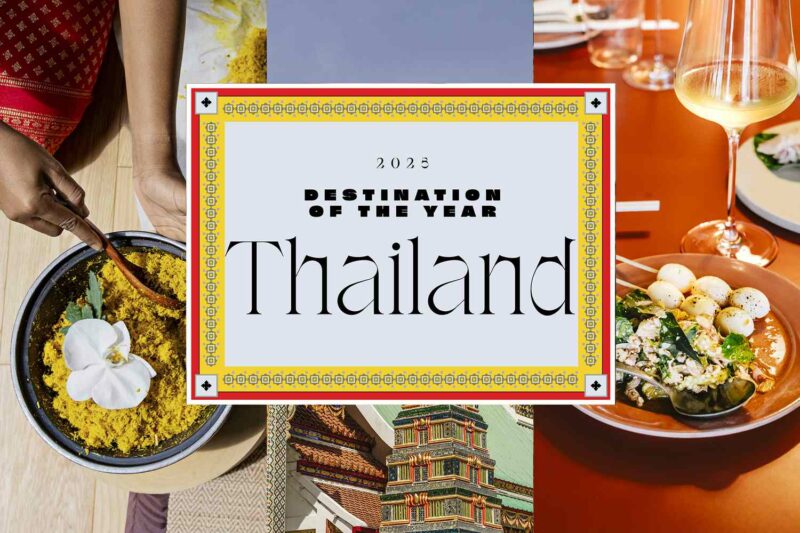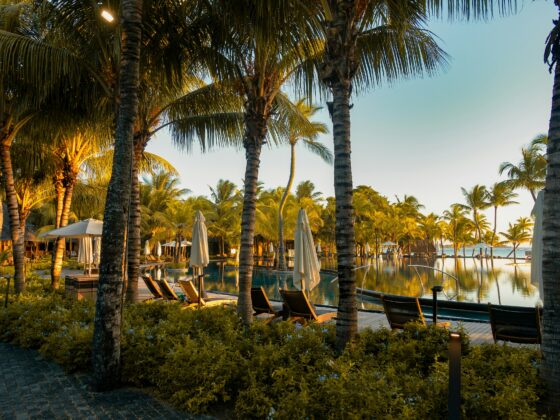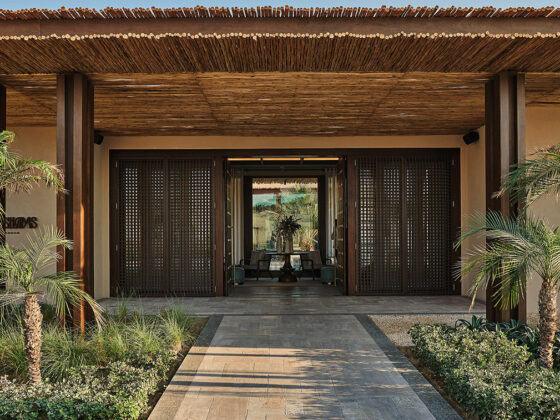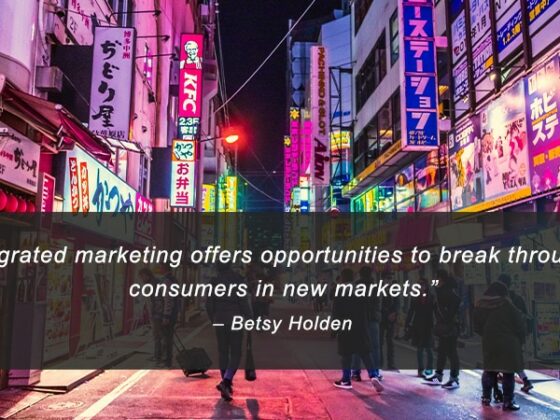Josiah:
Ennismore is the largest and arguably hottest collection of lifestyle brands in hospitality, and today’s episode is packed full of career and leadership lessons from the person leading their business in the Americas.
Philippe Zrihen is the head of Americas for Ennismore and started his career in finance, with finance playing a bigger and bigger role in hospitality. I want you to hear the perspective of someone who has deep expertise in this area. In this episode, you learn about Philippe’s career journey, the worlds of finance, mergers & acquisitions, working with Accor, assembling a collection of lifestyle hotel brands, leadership lessons, and building a strong organizational culture. But to start us off, here he is explaining the beginning of his career and what attracted him to hospitality.
Philippe:
Basically kind of a competitive aspect, a team aspect, a pressure-filled aspect, and for me that was meaningful, to kind of have something to play for, if you will, and I don’t want to kind of overstate the importance of investment banking, but it was kind of that pursuit attached to this.
Josiah:
Were you an athlete in school?
Philippe:
Yeah, and a lot of ice hockey is big in Canada, so attached to the stock market, which was kind of this fundamental driver of this competitive dynamic. Plus being in the midst of interesting global type of sectors and industries and trends just kind of made it a natural path for me to pursue. And, of course, if you’re going to do that, then New York is the place to do it. And so that’s how I ended up in New York in the middle of Tech Boom in the early 2000s. So it was a place to be and it gave me a taste of a lot of different industries, a lot of different sectors, and a lot of different exposures to entrepreneurs and clients who were looking for advice and guidance. And it wasn’t a situation where you’re in a dynamic where somebody comes to see an investment bank or somebody kind of interacts and it’s like, oh, I’m going to get the knowledge of the person that I’m talking to. It was more a situation of lets all converse kind of high achieving people, whether in corporate or in the financial world, and let’s exit these sessions all knowing more than we knew coming in. And that was appealing in terms of being in a professional kind of advisory segment.
Josiah:
And that’s interesting because I think a lot of people may not. They may have these preconceptions about working in finance.
Philippe:
Totally. And I mean that’s part of it because ultimately when I started, I started working for big firms, big, large investment banks, where it became a little prescriptive in terms of hey, we have all these services, tell us what you want and we’ll just do it. And for me that sounded a little too commoditized in terms of if I’m doing this job, I want to feel like I’m actually adding personal value, not just saying I can deliver the firm and here we go. So I kind of progressed to more of smaller advisory firms where we didn’t have a big balance sheet or we didn’t have a big capital markets desk. It was more of I’m giving you advice and hopefully the way we think about things can help elevate the way you’re thinking about things. So I did that for a long time you know 15, 16 years and my thought was always I’m going to focus on a space or sector within investment banking that is interesting to me, that is passionate to me, and eventually kind of starting in technology and then moving into technology and travel and took me into travel specifically and then hospitality and then lifestyle hospitality and started actual practice in lifestyle because I just had an interest in it. And again back to my point of saying I did that when I was looking for fun on my personal time. If I can wait to mix it into what I was doing at work, then all the better. And it was the right time because 2008, 2009, 2010, You had companies like Morgan’s starting over in the kind of lifestyle space and trying to find a way to make it work and there weren’t many firms willing to take the time advising these companies because it was unclear where they were going, it was unclear if there were transactions. But my view was let me invest and see what happened. Invest in terms of my time and see what happens, so create a kind of a niche in that space, and just to follow up on that at that moment in time was there a bit of a question mark on the financial viability of these sort of lifestyle hospitality concepts. Yeah, for a couple of reasons. One, it became unclear to time as to whether being an asset-heavy type company or an asset-light company made sense because Morgans, for example, owned all their assets initially and the view is you’re too small to be asset-light because you’re only getting management fees, so you have to own your assets. But then you need capital investment and you need outside partners and that becomes a little more complicated because in many cases these lifestyle entities were driven by one single founder with one mantra, one philosophy, one perspective, and the idea of that founder shedding some control in exchange for capital was always tension-filled, always tension-filled. So that became difficult in terms of how do you manage the uniqueness of what the entrepreneur founders bring into the table with the maybe more financial growth aspirations of outside capital, and that was tough to reconcile. In addition, there’s this natural tension, just operationally, of can you gain critical mass in a space like lifestyle hotels, which are unique by definition, and say we’re going to grow aggressively but not lose what makes us special? So it was controlled growth, but if you don’t grow fast enough you’re not going to get capital. So how do you manage that balance? And there were a lot of companies at that time who tried to invest in smaller groups kind of failed in terms of them turning into just another version of the larger acquiring company. So that was an issue, but it was evolving over time and there were different companies finding their way and at the same time you had the larger groups the Marriott, the Hilton’s, the Heights of the World saying, well, how do we get into this lifestyle space? What’s the right way to play? Do we partner with an Ian Trigger, for example? Do we invest our own capital? And the roadmap wasn’t really defined so kind of fast forward to 2015-14, where in that dynamic, as larger companies were looking to acquire maybe groups in the lifestyle space, Morgans, which was the dominant player and the most recognized, became available for sale. And because of the complexities involved in the company, it was difficult for the usual suspects to kind of go in full speed and say we’re going to take it on and take on the risks and so on. So the idea was maybe Morgans could find a partner similar size or somewhat in the same kind of entrepreneurial mindset and grow together. And there’s a company called SB that I was advising at the time as a banker that started discussing with Morgans let’s do a deal together. Because of the complexities involved in just putting together two entities like that. It took a long time, a very long time, and I got really, really close to the day-to-day of both companies and trying to get that deal done to the point where, at the end of the deal finally getting done, the founder of SB, Sam Nazarian, said hey, why don’t you join the new SB Morgan’s and help me grow the business? So 18 years doing investment banking, kind of the same thing, but always knowing that eventually it was going to be time to leave, not being, I don’t know, ideological enough to say this is going to be when I leave and just saying eventually, when it happens, I will know. And that made sense because it was similar to what I was doing to a certain extent similar space and just a way to expand. So that’s how I joined SB and made the shift and it was really driven by saying, okay, so in 20, 25 years I’m going to wake up and I’m going to say did you do the same thing all this time? So, yeah, I don’t want to make it too philosophical, but it was. Let’s do something different. And there’s a white space here that’s being created in terms of lifestyle and growth, and maybe I can help play a role in making that happen.
Josiah:
I love it. Tell me about your role today and what does it include? So?
Philippe:
once moved to SB, we started kind of growing fairly aggressively and my role was to effectively oversee all parts of the business, with lesser focus on what I would call day-to-day operations. Nobody wanted me to go into a hotel and say, hey, you should put the fork this way. That was not my expertise but it was more strategic advisory how we grow the business, negotiations with the owners, the non-operational oversight over the company. And about two years in, as I mentioned, a lot of the large groups were looking at small boutiques, lifestyle companies, to try to invest in. And we got a lot of interest from a few different groups, including Accor, and for a lot of different reasons Accor made the most sense for us to partner with. So they bought a 50% stake in SBE with the idea of they would learn from us and we would benefit from them. And the goal was can we spread the needle by having the best of all worlds, where we get global distribution, loyalty, sales, all the things that a big entity can bring, but bring to them our unique kind of DNA and expertise in lifestyle, but not overbearing each other? So that lasted about two years a great partnership. And then Accor had a perspective, that of all the several lifestyle investments they had made. Maybe it was time, now that there’d been a proper amount of knowledge sharing, to put them together into one umbrella and to be run independently, so to allow a proper culture to be cultivated true lifestyle culture and to have a separate entity that would be eventually called Ennismore, which is what we’re talking about today. So in 2020, Ennismore was created by putting together 15 different brands in a JV with Hoxton, formerly known as Ennismore Hoxton and calling it kind of Ennismore 2.0, and having these 15 lifestyle brands together plus 40 or so food and beverage brands, all under this umbrella, still controlled by Accor, but run independently and with its own philosophy and strategy.
Josiah:
How’s it been? It’s been a couple of years since that relationship with Accor. What’s been like working with Sebastian and the team there?
Philippe:
what have you learned? So the great thing about Accor is that they really have a very pragmatic I would say, kind of portfolio approach to what they do, so they really don’t try to implement. This is the way we do things. This is the only way we do things. It’s there to be a support but to allow everything to kind of thrive within it. So that’s been super helpful and for us as an entity, we’ve had to not only navigate the relationship with Accor and how we take all the good things but keep our identity, but also figure out how we’re going to combine the culture of the 15 different brands that I mentioned because they all come at lifestyle a little differently and it’s not the kind of thing that you can plan out and map out. It’s a kind of thing where you have a sense as to what the challenges may be, but you kind of knock them off one by one and again you really go into it with the philosophy that we’re all well-intentioned and we’re all going to find ways to do things, versus putting up roadblocks not to do things. And as long as that those two components are there, it’s moving in the right direction. We’re in a good place. Every day is kind of more and more kind of one company, and the most important piece is that we can now articulate, I think, fairly well to owners, because we’re still an Accelad company. Here’s what we can bring to you that is different than others in terms of a full service model and all the benefits that we can talk about.
Josiah:
So you referenced before this notion of efficiency and for me this is interesting. I’ve had a couple of conversations recently with people some people who spent their whole career in hospitality and in their view they feel hospitality can be ruined when you have it driven just from a private equity. We’re going to maximize every cent of a profit. You have a background in that, so you understand that world. You know investment banking, you know it, private equity but you’re also a hospitality leader now overseeing many, many brands. How do you think about that tension and how do you resist the pull to just eke out every cent of short-term profit?
Philippe:
It’s not easy because I think that no matter what you are a function of your background, as you say and somebody who is coming at this from a branding perspective or somebody who’s coming at it from a finance perspective will just have a bias and they just have to kind of meet in the middle. So I definitely have evolved over time, since starting in the industry, to better comprehend and understand how important some of the things that are not necessarily tangible are to the overall experience and to give them as much credibility as the tangible financial components of it. But ultimately, this is a business and you have to make the numbers work. But it’s striking that balance and what I find works better than anything is to allow and encourage everybody to have a holistic perspective on what we’re trying to accomplish and not to say, okay, this is your lane and this is only your focus, and this is my lane and my focus, because then you have more tension than you need. But at least if you have people who are willing to knowledge share, to understand the full picture and to have conversations that go more like I know what you’re trying to accomplish, but hear me out versus you’re wrong, I’m right much, much better, and that goes to again working in an environment, hopefully within kind of the lifestyle, entrepreneurial mindset of hiring people who really are eager to swim in different lanes, versus saying that’s all. I do, nothing else. Here’s my list. I come in at 8am, check, check, check. I go home. That just doesn’t work and that’s kind of a lesson learned, frankly, from being an investment bank in the advisory world, where you are expected to have a perspective on everything, not just one thing.
Josiah:
Yeah, you talked a little bit about your own personal journey and I’m curious now for you is there a recent hospitality experience that you’ve experienced that inspired you or helped you stay connected to? This is what could happen in hospitality and move hospitality from just being the spreadsheet driven sort of thing into more of a feeling.
Philippe:
There’s a couple of things that come to mind. One is I was just by coincidence a client at the Delano in Miami, an iconic, maybe the first really truly lifestyle hotel ever for a long time kind of family vacations and so on and so forth and by happenstance ended up being part of the Morgans portfolio that we ended up buying and then having oversight over it, and now it being closed during COVID and now we’re kind of back into renovation mode to reopen it again. And when I go into the Delano now… I feel what I felt when I was a client and I have a direct, firsthand understanding as to what we need to recreate to make it work. And it’s not about the numbers, it’s not about anything else, it’s really about a feeling of I come into the hotel and in the past people used to say, oh, lifestyle was a place that only cool people went to, but really it’s a place where anybody is made to feel cool. So that is what the Delano did and that’s an example of where things have come full circle from a personal perspective, to work perspective, to say, at the end of the day, we are selling an experience and if we don’t get that right, the numbers don’t matter and the numbers will not work. So that’s my example.
Josiah:
It’s a great example. I was talking to somebody a couple of days ago that was really dialed into the music and the soundtrack of the hotel and there’s so many elements that go into a hospitality expert. Yeah, is there anything kind of specifically for you and a guest experience that makes you feel like this is amazing?
Philippe:
I think two things come to mind. One is what you are greeted with when you enter the hotel. I think that’s the first impression and it’s very deliberate and very thought through in terms of how the traffic works, what the visual is, who you are met by. And it’s not often you can ruin a whole experience if it takes half an hour to check in, if you’re not quite getting the sense of the surroundings when you first walk in. So programming that first experience is incredibly important. And then, secondly, it’s the other components that are not as noticeable but are somewhat visceral Music, sense, sense are hugely important and they’re the kinds of things that later on, when you hear the same music or when you sense and smell the same, you get the same feeling. So that’s important in terms of trying to bring this to kind of an emotional reaction versus just a minute or other hotel.
Josiah:
I wonder if we could talk a little bit about people. You mentioned you know this being this seems to be a thread throughout your career. You talked about it from a sports perspective, from an investment banking perspective and now as a hospitality leader. You mentioned, when we first sat down, kind of people not wanting this regimented corporate environment. But as you oversee so many teams, so many brands, I’m curious as you think about people and the culture that you’re looking to build within your organization. What are you looking for? What does it take to succeed in this environment?
Philippe:
I go back to individuals who come into an environment where they are comfortable in an unstructured setting. I think is very important when you’re starting your career and as you’re moving up, being willing and ready to try new things, to learn new things and to be comfortable in uncomfortable situations is very, very important, which means that you, by definition, are making yourself valuable because people know that they can come to you to solve problems, and it doesn’t necessarily have to be this problem, it can be any problem. So when I hire people or work with people who have that attitude, it inspires confidence in me because I feel like I can approach them and I can throw curveballs at them and they’re gonna identify things that we or I haven’t thought of, because they’re not. It’s not just a one way street. They’re kind of empowered to say I hear you, but here’s my perspective. So it goes back to being comfortable beyond your lane, having an airvector for a tease, but really being hired on potential and the ability to get a more holistic experience. And maybe it’s just me, but I just find it hard to believe that anybody starting out in any industry wouldn’t find it welcoming to say you’re gonna get broad exposure, you’re gonna learn different things. Some days you’re gonna feel frustrated, some days you’re gonna feel really satisfied, but ultimately any eventual satisfaction and accomplishment comes from a place of having struggled. So you have to welcome that to a certain extent, and I guess it’s not for everybody. But in a culture like ours, where we’re trying to push the envelope and we have to reinvent ourselves, it’s super important.
Josiah:
You’ve worked a lot of places during your career and I’m curious if any environment or working relationship stands out to you as formative in how now you think about leadership and the teams that you built.
Philippe:
I mean, I spent most of my career in investment banking and I think that when I was a younger individual working there, I found two kinds of senior people, some whose attitude was things were done a certain way when I was going through the business. I didn’t really understand why they were done, I just accepted it and therefore you should accept it too. There are others who had an attitude of things were done a certain way. Sometimes it made sense, sometimes it didn’t make sense, and if it didn’t make sense I spoke up and that enhanced my job satisfaction and I trust it will enhance your job satisfaction if you do the same, and that was what I naturally gravitated to. I did not like the idea of being in a cubicle when you’re a junior banker and saying this doesn’t make sense to me. I’m sure it doesn’t make sense to anybody else, but nobody’s saying anything, so I can’t say anything. It made much more sense to say let me say something, and if it doesn’t work then that’s fine. It’s something that can give me reason. But at least I feel like I have some control, which everybody is seeking. So that for me was formative to make a conscious decision, to say if and when I’m ever in a position of leadership. I would like to avoid anybody who works with me and for me feeling like I can’t say anything, because clearly that’s what the way it is.
Josiah:
Yeah, I love that. We’re always trying to recruit talented people into this industry, so I’m always fascinated to hear stories like yours, where it’s not necessarily the traditional path of someone working in investment banking and then moving to hospitality For talented people that are out there not working in hospitality. What would you say to them to maybe consider a career in hospitality?
Philippe:
Yeah, I think that having a passion or an interest into what hospitality represents is very important, because then you’re coming to work, but it’s not really work. You’re just thinking through things that interest you regardless. So that’s number one. Number two is the amazing thing about hospitality is that there are so many different ways to be in the industry. Whether you are on the ground as a bartender, whether you’re working in front desk, whether you’re working in finance development operations, whatever interest you have, the threat of hospitality can put it all together. So I wouldn’t necessarily start by saying I’m going to go in and this is what I want to do specifically and this is my career. I would just get in the door whatever way you can and then over time you will learn what interests you, how you evolve and what makes more sense to you. When I was in college, I was a waiter in a hotel not in a millionaire’s, but I think that would kind of come full circle, but it has. So you just never know where things are going to take you. But I would just say have an interest, be passionate and understand that your entry point in hospitality or any other industry is by no means where you’re going to eventually end up, and that’s a good thing.





